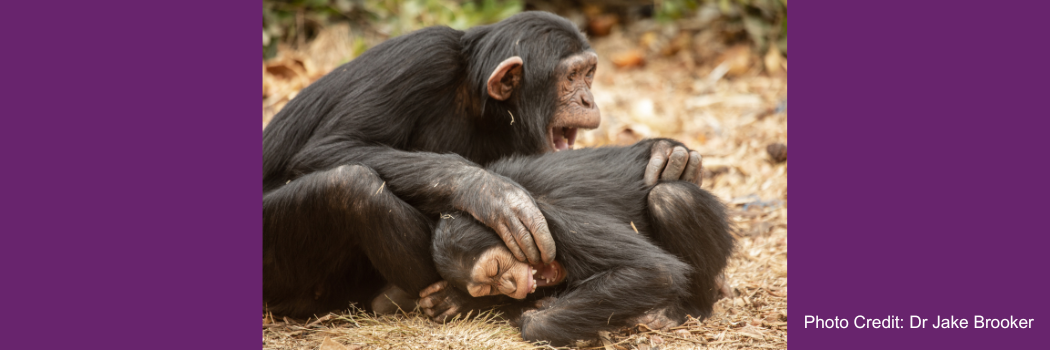
Researchers from our top-rated Psychology department have discovered that social bonding behaviours in chimpanzees, like grooming and play, can spread through groups much like contagious yawns or laughter in humans.
Observing chimpanzees at Chimfunshi Wildlife Orphanage in Zambia, scientists found that individuals were more likely to start grooming or playing after seeing others engage in the same behaviour.
This behavioural contagion may strengthen connections within the group, and play a role in social bonding and harmony.
Positive contagion supports social connections
Previous research on behavioural contagion in animals has focused on reactions to stress or threat, but this new study shows that positive social behaviours can also be contagious.
In the case of grooming, chimpanzees were more likely to mimic the behaviour when they had close social bonds with the individual they observed, reinforcing friendships.
Play, however, was more contagious among younger chimps, highlighting its role in building connections for younger group members.
These findings suggest that positive interactions, much like negative ones, can spread within groups and foster a more cohesive community.
Implications for understanding human social behaviour
The study offers new insights into the evolutionary roots of empathy and emotional awareness, suggesting that the roots of human social bonding may have begun with behaviours shared by our closest primate relatives.
The researchers believe this could help explain how early humans developed mechanisms for maintaining social harmony in communities.
By demonstrating that positive behaviours can be caught in chimpanzees, the research provides a new perspective on the social lives of animals, with potential applications in understanding social connections across species.
The research underscores that social contagion is a valuable tool in primate groups and may have been an evolutionary advantage that influenced human social structures.






